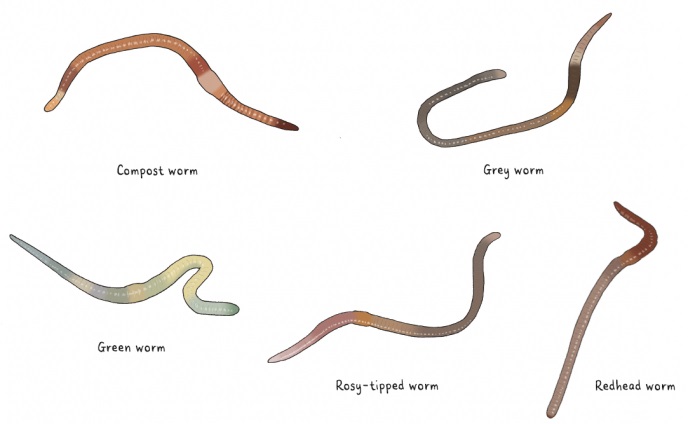Instead of sending your green waste to landfill, create your own compost
The benefits of composting your garden and kitchen waste are two-fold. You’re reducing the amount of waste sent to landfill and providing a habitat for a range of minibeasts. The community of minibeasts who live among the waste help the decaying process, and in turn, these beasts are a delicious food source for hedgehogs and other animals.
All you need for a successful compost heap is waste, air and water!
In addition to saving you money, using your own compost will increase the organic content in your soil. Think of your home-made compost as a soil improver – meaning you should mix it well with your existing soil or bought compost. This will boost fertility and help plants to build up resistance to disease and insect attack, thus reducing the need to use chemical controls. Using your compost will also improve the structure and health of your soil, increasing its water retention and nutrient content. Healthy soil feeds the micro organisms that are responsible for digesting the organic matter in the first place, as well as keeping the worms happy!

How to get started
All you need for a successful compost heap is waste, air and water! A simple heap covered with plastic is just as effective as a ‘bin’. The only advantage of a container is they look tidier and can be easier to manage. Try to pick a shady spot to keep things moist, and water any dry ingredients you may be adding.
To create good compost, you should mix carbon based waste (browns) half and half by volume with the nitrogen- based plant (greens) remains. (If you suspect you have diseased plants, such as club root in brassicas, white rot in the onion family and any other suspected diseases in your crops, then these need to go into the black bin and not the compost pile)
The green material provides nutrients and moisture whilst the browns decompose more slowly and provide the energy source for the microbes that carry out the composting process.
The brown material also absorbs excess moisture and facilitates air-flow within the heap

Browns (Carbon)
• dead leaves
• old straw/hay
• dry plant stems
• sawdust in small amounts
• shredded paper in moderation
• wood ash
• torn cardboard – small pieces
Greens (nitrogen)
• grass – in moderation
• fruit and vegetables (raw)
• tea leaves and coffee grounds
• pea and bean-tops
• manure
• bedding plants
• urine – male only
• young weeds
• flowers
• comfrey / nettles
NOT TO BE INCLUDED
• cooked food or bread
• meat or fish
• coal and coke ash
• cat litter or dog faeces
• glossy magazines
• plastics, metal and glass




